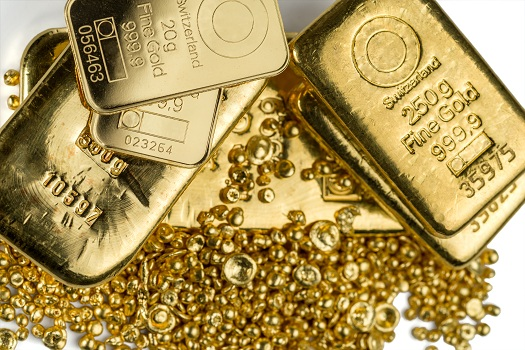Will a Gold Bar Deteriorate Over Time?
Since gold bars are a substantial investment, it’s important to store them as safely as possible. In addition to making sure your bars are secure from theft, you also need to protect them from damage. The good news is this might be easier than you think. Though many people worry about their gold deteriorating, the reality is that gold is a remarkably sturdy metal. The experienced professionals from First National Bullion, Carlsbad precious metals collectors’ gold dealer of choice, explain why gold is such a durable material.
Do Gold Bars Tarnish?
Many metals, such as silver, deteriorate over time. Chemical processes such as corrosion and rust literally eat away at some metals until there’s nothing left. However, you don’t have to worry about your gold bars gradually disappearing over time. Unlike most other metals, gold never corrodes or tarnishes. Very old gold bars might look a little dark and grimy when you first get them, but this isn’t due to tarnishing. The patina on gold bars is just dust or grime stuck to the surface of the gold. When you clean the bars, you’ll find they contain the same amount of bright yellow solid gold they originally did.
What Can Damage Gold?
Gold is an interesting metal because it’s very durable but also very soft. Essentially, this means the typical gold bar won’t dissolve, corrode, or break down. Basic chemical processes, exposure to the elements, or storage in suboptimal conditions won’t destroy your gold. However, gold bars are very easy to dent or scratch. This means that over time, your bars might start to look a little less shiny and a bit more flat. These cosmetic changes don’t affect the value of your gold. However, if your gold gets dented enough to obscure mint markings, it might take a little longer to verify a bar’s quality.
What Destroys Gold?
Chemically speaking, gold is a very unreactive substance. While gold alloys can break down in substances like chlorine, that’s mostly due to the other metals alloyed with the gold. The pure gold used for gold bars doesn’t easily break down or dissolve. One of the only things that can cause gold to deteriorate is aqua regia, a concentrated blend of nitric acid and hydrochloric acid. This isn’t a naturally occurring substance, so you don’t need to be too concerned about your gold bars coming into contact with it. However, it’s used in some industrial-grade lab cleaners and chemical etching solutions.
How Do You Store Gold Bars Safely?
You can store gold almost anywhere without damaging it severely. Some people even bury their gold bars in their backyards. However, for optimal security and protection, it’s a good idea to store your gold in a waterproof indoor area. To prevent theft, most gold owners store their bullion in safes, hidden containers, bank security deposit boxes, or vaults.
For more information on any aspect of owning precious metals, call on the experts at First National Bullion and Coin. In Carlsbad, gold and bullion collectors can trust our reputable dealers. We’re a boutique precious metals firm with a fantastic team of experienced professionals. If you’re looking to add more precious metals to your collection, call us today at 760-253-8072.
The statements made in this blog are opinions, and past performance is not indicative of future returns. Precious metals, like all investments, carry risk. Precious metals and coins may appreciate, depreciate, or stay the same in cash value depending on a variety of factors. First National Bullion does not guarantee, and its website and employees make no representation, that any metals for sale will appreciate sufficiently to earn the customers a profit. The decision to buy, sell, or borrow precious metals and which precious metals to purchase, borrow, or sell are made at the customer’s sole discretion.


